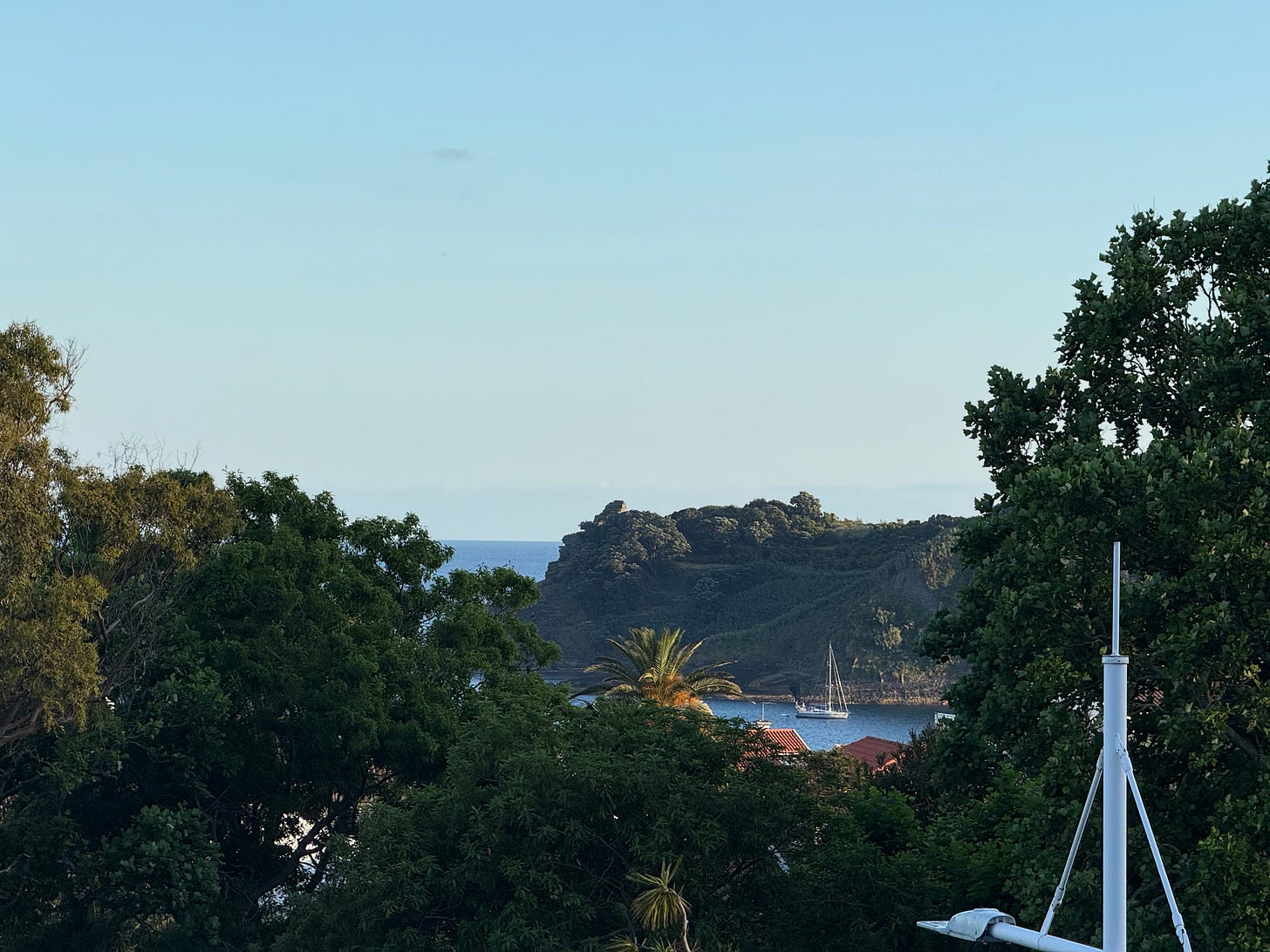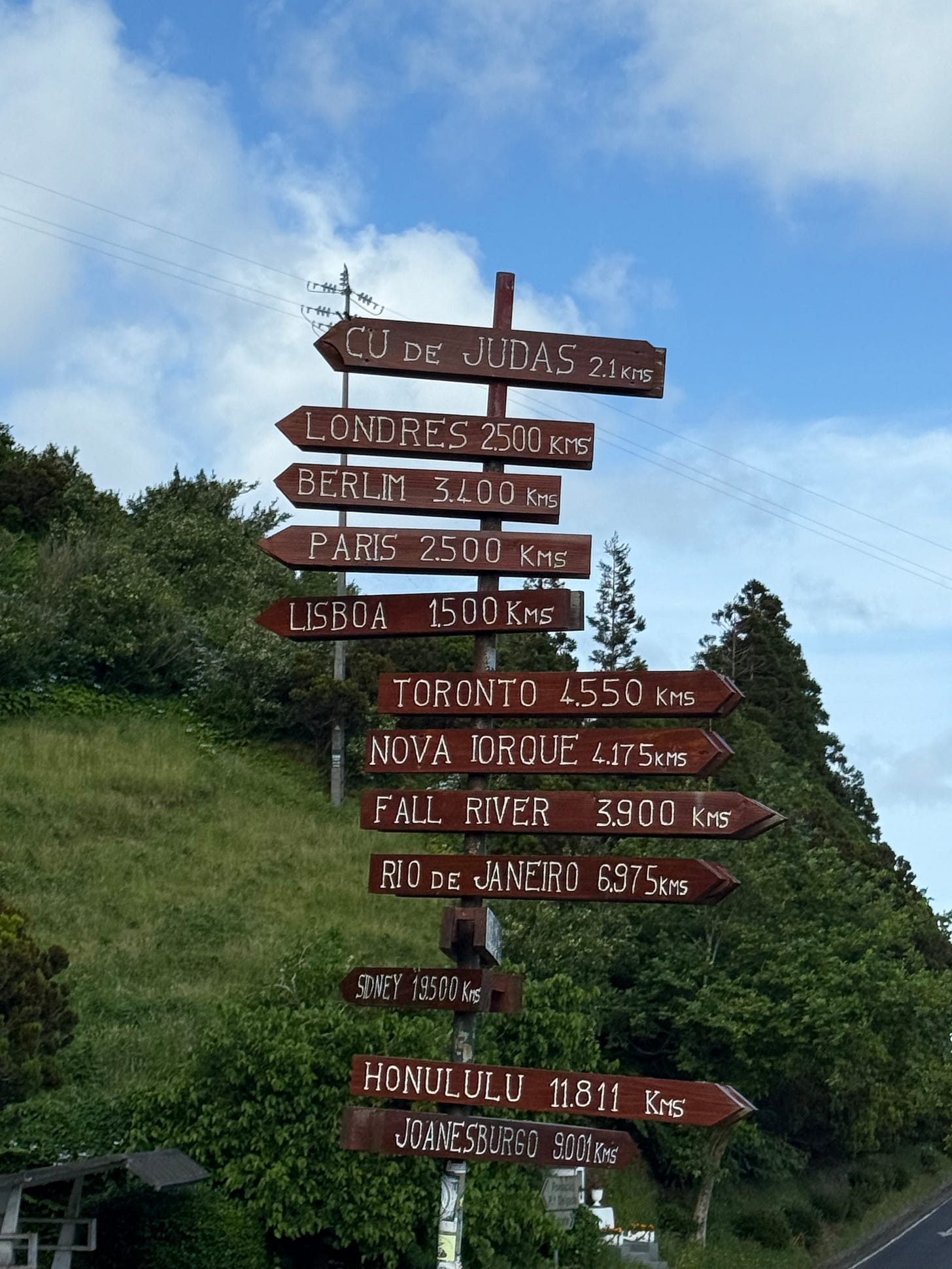Small Phrases to Practice Before Traveling
Locals are fed up with tourists, so show some kindness beginning with honouring their native tongue
I’ve been living in another country for a couple of weeks now, and despite the small practice I’ve been doing for about 1 year prior to my arrival, adopting a second language is very difficult. One thing I’m finding I’m very grateful for is the fact that I don’t need to know the language here, because the main international language is - to my benefit - my native tongue, English.
There are a number of ways to get around in a new country, but language is one you will need. To have English as a main speaking language is a privilege. Many of the locals here in São Miguel, Portugal are speaking English because of work.
Almost all of the workers in the bakeries, shops and kiosks all speak proficient English. I’m trying to integrate as much language as I can, and can ask a simple question like “Onde esta a casa de banho? or saying “Eu vou tenho uma pastel de nata, por favor,” and while the locals know that I’m not from here, they appreciate the effort - despite the bad grammar.
When you make the effort to try and learn the language, the locals are a lot kinder, and being that these areas are now becoming destination spots instead of places to enjoy the culture, it’s nice to show some respect by implementing a bit of the language.
Europe is beginning to retaliate against tourism. People are spraying water at tourists, yelling at them to go home, you may receive an overpriced tourist menu at a restaurant instead of the local one, and all because their economy is skyrocketing due to an influx of influencers taking over the main cities. I’ve personally been warned by a few locals not to go to Lisbon - a place I thought was relatively safe - because the likelihood of being pickpocketed is increasing in this area. Don’t carry too much money with you, don’t wear nice clothing, don’t flaunt your nice jewelry, etc.
It’s not as safe as it once was to travel to Europe, so coming from a girl who is here on her own, I would advise travellers to at least show some respect when traveling by adopting some of the most common phrases to get around.
Phrases to look up and know how to say in the native tongue prior to traveling:
Yes/No
Thank you
Sorry
Please
Ordering food ~ I would like a… /I will have the…
Asking basic questions ~ Where… /What… /When…
Statements ~ I want… /I like… /I need…
I don’t speak [name of language]
These are just beginner friendly starters, and it’s likely that if you ask a question in their language to a person working at a bus station, a restaurant or a shop, they will pick up on your foreign accent and speak to you in English, but they will at least know you are trying to adopt some of the culture and for that alone, will probably be a bit kinder to you.
In the worst case scenario, they will continue speaking to you in the native language, in which case if you are not comfortable continuing the conversation in their native (your foreign) language, I would learn how to say phrase #8 very well.
You should also know if the language you are temporarily adopting has masculine & feminine conjugations. You are not going to know all of the nouns, but you should know how to conjugate the words for phrases you will use most frequently.
Are you traveling soon to a foreign country? Will you be needing to rely on everyone around you to speak English? If so, I would suggest adopting some of these starting phrases to get around and be a bit kinder to your local vendors.






